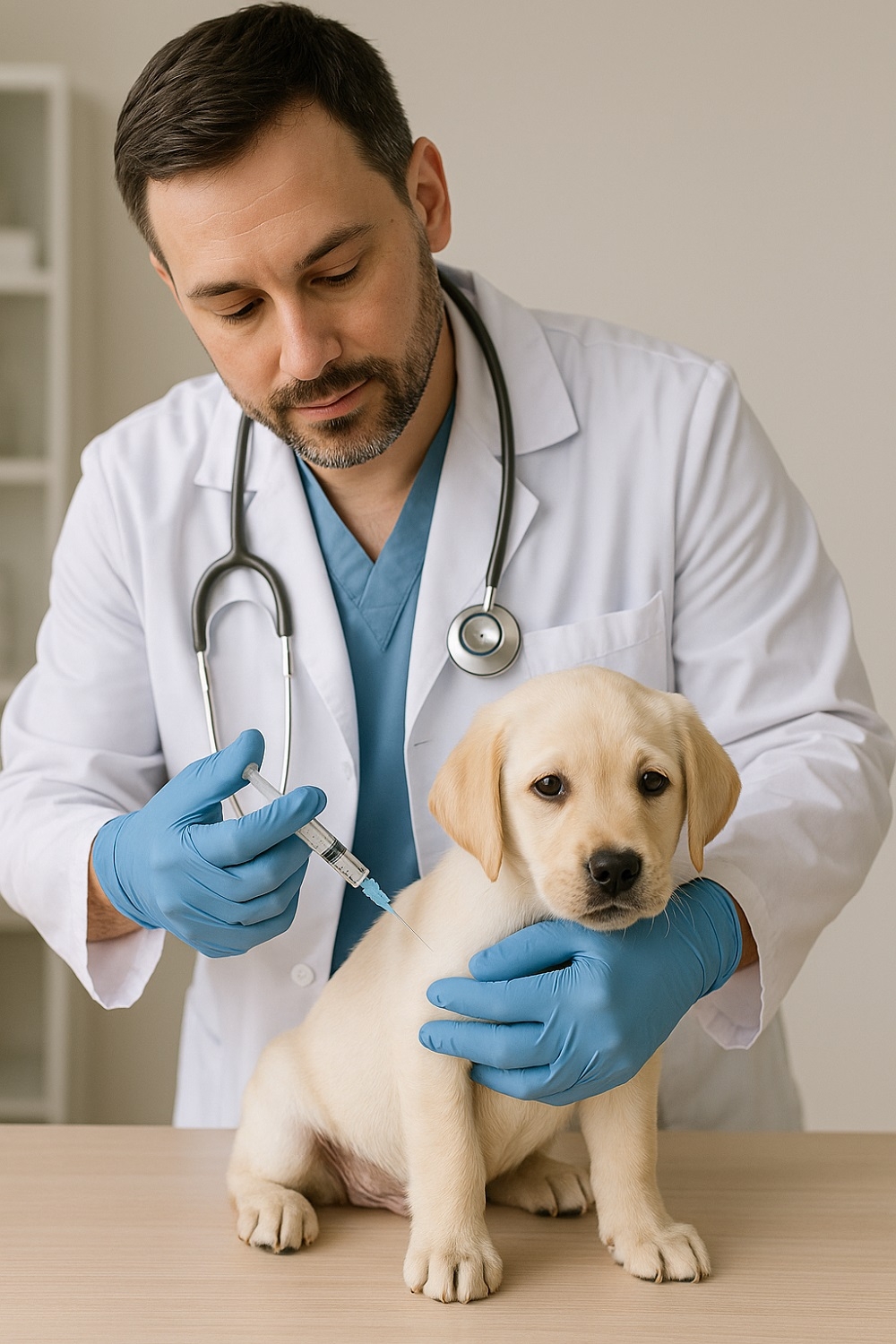What Vaccinations Do I Need to Give My Gundog Puppy?
Ensuring your puppy receives the correct vaccinations is crucial for their health and to prevent the spread of serious diseases.

Core Vaccinations for Puppies in the UK
These vaccinations protect against diseases that can be severe and potentially fatal.
- Canine Parvovirus (CPV): This is a highly contagious and often deadly virus.
It causes severe vomiting, bloody diarrhoea, and dehydration, particularly dangerous in young puppies. The virus is hardy and can survive in the environment for long periods. - Canine Distemper Virus (CDV): A serious viral illness affecting a dog's respiratory, gastrointestinal, and nervous systems.
It is often fatal, and dogs that survive can have permanent neurological damage. There is no cure, making vaccination critical. - Infectious Canine Hepatitis (ICH) (Canine Adenovirus - CAV-1 & CAV-2): CAV-1 causes infectious canine hepatitis, a severe and potentially fatal liver infection.
CAV-2 is a cause of respiratory illness, contributing to kennel cough. Vaccination often covers both strains. ICH can attack the liver, kidneys, eyes, and blood vessels and can survive in the environment for up to a year. - Leptospirosis: This is a bacterial disease that can damage a dog's liver and kidneys and can also be transmitted to humans (as Weil's disease).
It's spread through the urine of infected animals, particularly rodents, and can contaminate water sources like ponds, rivers, and stagnant water.
These diseases are often severe, can cause significant suffering, and can be fatal, especially in puppies whose immune systems are still developing. Widespread vaccination helps to create "herd immunity," which protects not only vaccinated dogs but also reduces the overall prevalence of these diseases in the dog population, offering some protection to unvaccinated or vulnerable dogs.
Non-Core Vaccinations for Puppies in the UK
These vaccinations are recommended based on your puppy's individual risk factors, such as their environment and lifestyle.- Kennel Cough (Bordetella bronchiseptica and/or Parainfluenza Virus): This is a highly contagious respiratory infection that causes a harsh, dry cough.
While rarely life-threatening in healthy adult dogs, it can be unpleasant and can lead to complications like pneumonia in puppies, older dogs, or those with other health conditions. It's often required by boarding kennels, doggy daycare facilities, and for participation in dog shows or training classes where dogs mix closely. - Rabies: This is a fatal viral disease affecting the brain and spinal cord. Rabies is not currently present in the UK. However, vaccination is a legal requirement if you plan to travel with your dog outside of the UK or bring them into the UK under the Pet Travel Scheme.
- Canine Herpes Virus: This may be recommended for breeding bitches to protect their puppies.
- Leishmaniasis: This is a parasitic disease transmitted by sandflies.
Vaccination may be considered if you are travelling with your dog to areas where this disease is common (endemic areas). - Borrelia burgdorferi (Lyme Disease): This bacterial infection is transmitted by ticks.
Vaccination may be considered for dogs at high risk of exposure to ticks in areas where Lyme disease is prevalent.
Why are these non-core vaccinations important? They provide protection against diseases that your puppy might be exposed to due to their specific circumstances, such as regular contact with other dogs, travel abroad, or living in an area with a higher risk of certain infections.
Typical Puppy Vaccination Schedule
Puppies typically start their primary vaccination course when they are around 6 to 8 weeks old.
- First vaccination: Often given at 6-8 weeks of age.
- Second vaccination: Given 2-4 weeks after the first, typically around 10-12 weeks of age.
Booster Vaccinations
After the initial puppy course, your dog will require regular booster vaccinations throughout their life to maintain their immunity.
- Leptospirosis and Kennel Cough boosters are typically needed annually.
- Boosters for Distemper, Parvovirus, and Infectious Canine Hepatitis are usually given every three years, depending on the specific vaccine used and your vet's recommendation.
It's always best to discuss your puppy's specific vaccination needs with your veterinarian. They can provide tailored advice based on your puppy's health, age, breed, lifestyle, and the local disease risks.
